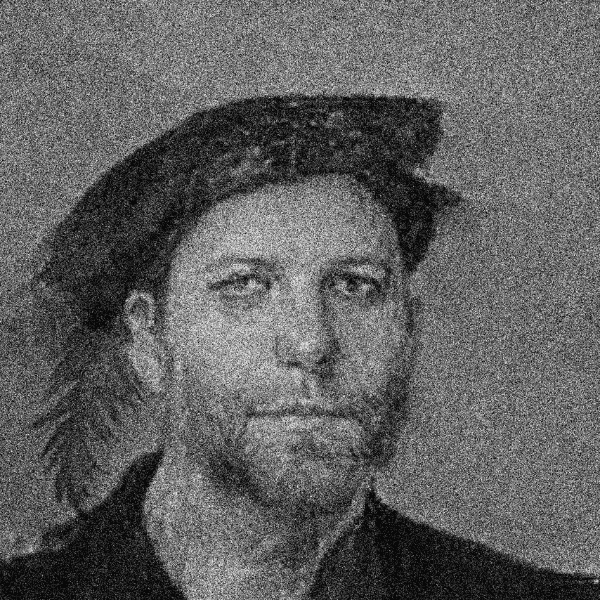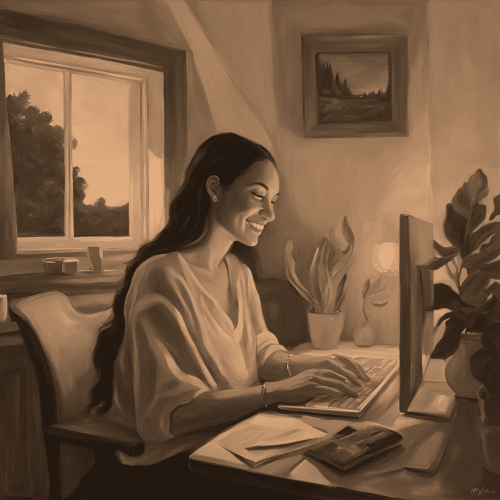I was working with ChatGPT to see how good it was at personality analysis and out of nowhere, it not only started referring to me in the third person, it started calling me “Ed”. The assumption that I go by “Ed” actually bugged me more than that it was analyzing me in the third person:
Ed seems to thrive on keeping his options open and responding flexibly to opportunities that arise, rather than sticking to a regimented plan. His varied life path, from carnival worker to young husband and father to entrepreneur, suggests a more spontaneous perceiving approach.
(I promise I’ll come back to ChatGPT’s sudden desire to go from second person to third person.) As for why the “Ed” thing bothered me so much, I should start with something you may not know about me: I go by “Edward” and never “Ed”. In case you think I’m being pretentious (for a good example of that, see Richard Gere’s character “Edward Lewis” in Pretty Woman), this is because I’m actually a “junior.” If you don’t care about the explanation, skip the next paragraph (and just please don’t call me “Ed”).My father was “Edward Roske, Senior” and there’s at least one more Edward Roske above him in the family tree (so I guess that makes me Edward Roske, III?). When people talk about “Ed” in my presence, I still instinctively think they must be talking to my father. Though he passed away over 20 years ago, I still go with “Edward” as a sign of respect, because “Ed” will always be my dad’s name. I learned a lot from “Ed Roske” and no, ChatGPT, I’m not him… but our personalities do have some overlapping points.
My father was a storyteller and quite a good one at that. Many of his stories involved things he had (supposedly) experienced in his crazy life. In the majority of his stories, my dad was a sort of modern day trickster god and like the best trickster gods, often the stories would end up with something hilarious happening (often to my dad). He could have an entire crowd in stitches.
One day when I was about ten years old, my dad finished telling me a story (involving his pants falling down during the opening tipoff of a basketball game). After I stopped laughing, I asked him, “Dad, is everything in all your stories true?” And my dad replied, “son, never let the facts stand in the way of a good story.”
Note that he never actually answered my question, but he did leave me thinking that to him, at least, the facts were less important than the impact (and humor) of the story. And in case you’re wondering, yes, he really did say this to me. I remember hearing almost these exact same words coming from the mouth of Steve Buscemi as Nucky Thompson on Boardwalk Empire right after he relayed a story of his personal involvement with a rat to a crowd hanging on his every word. If my dad had been alive to hear it, I’m sure he would have relayed how he knew someone related to writing of the show and that they got the quote from him, but I figure it was probably just coincidence.
To have the best idea of what my father was like, go see Albert Finney (as the older version) and Ewan McGregor (as the younger version) of “Edward Bloom” – yes, “Edward” cause coincidence – the main character in the movie Big Fish. Edward Bloom, not unlike my namesake, spent a decent amount of time living around carnival and circus folk, and he definitely knew how to spin a tale. What was real and what was in his mind? Who’s to say. But he impacted a lot of people if by nothing other than imagination and strength of character.
Like Edward Bloom, Edward Roske, Senior – “Ed” to everyone and “Big Ed” to many – was larger than life. He probably never said half the things he’s credited with saying nor did half the things he’s credited with doing, but no one would deny my dad was born to run businesses. He was the epitome of a serial entrepreneur. He absolutely loved to start companies. It was in his blood. He was creative and bored easily, but he had a strong work ethic. He was great at starting companies, good at running companies, and horrible at ending companies (many of his endeavors went belly up because he didn’t know when to let go). I remember him once saying to me when I was working for him as a vendor at a rodeo, “son, own your own business and you’ll never work a day in your life.” This struck me as odd, because he always seemed to be working, but I figured I’d understand it when I was old and wise like he was.
Following in my father’s footsteps, I started my first company, interRel Consulting, at 22. My dad’s first company was at age 13, so I guess I’m a bit of a late bloomer. I learned from Senior’s mistakes and determined to make sure that interRel never suffered the bankruptcy of some of my dad’s badly ended companies. As the company grew, I put in more and more and more hours. One day my dad called me and asked how it was running my own company, and I reminded him of his quote: “Dad, you said that if I ran my own business, I’d never work a day in my life. I worked 108 hours last week!” He waited for me to finish and said “Eddie” – yes, my dad called me Eddie but unless you knew me the day I was born, don’t try it yourself – “work is when you get paid to do something you don’t want to do. You run the company: if there’s something you don’t want to do, change it. But my guess is that you love what you’re doing, and son, doing what you love for yourself isn’t work.”
And I’ve been founding, running, owning companies ever since. And despite what it might look on the outside, I don’t consider it work even when I’m spending every waking moment thinking about or acting on the company. One of my current companies I’ve cofounded is SpotlessMind. We’re all about understanding yourself better to make sure your best days are ahead of you, not behind. We use several different AI technologies, but whenever I’ve got an idea about “I wonder if an AI can do this?” I usually try it in ChatGPT or Claude, because at least as of June 2024, those are the best models (especially for prototyping). So when I wanted to prototype “can AI give some insights into my essential self?” off to ChatGPT I went.
I had been interacting with ChatGPT for several rounds of back-and-forth. We talked about my childhood, my parents, starting companies, ending companies, anything I could think of so that ChatGPT could be able to correctly respond to the prompt I was building towards. After giving it enough data to give it a proper window into my personal context, I finally said, “give me some personality insights based on the conversation to this point.” It started off well enough saying things like:
You’re resilient and adaptable. Growing up in the unconventional environment of a carnival, you learned to be resourceful and think on your feet. You embrace challenges, such as becoming a young father and husband while still in college, and starting your own business at 22. These experiences showcase your ability to adapt to changing circumstances and overcome obstacles.
Rather than just focusing on concrete realities, Ed seems drawn to ideas, possibilities and big picture thinking. This shows in his early fascination with the carnival and his entrepreneurial drive to create something new.
The weird part is that its analysis is basically correct. Like my father before me, I am indeed drawn to ideas. I love pondering the possibilities especially at the big picture level. Like my dad, I think my carnie upbringing does lead me to want to create new, interesting, creative things. For that matter, my dad and I have far more in common than not. And that’s when I realized…… ChatGPT was no longer talking about me. The “Ed” it was referring to was indeed my father. He was the one who loved to keep his options open. He was a carnival worker, young father, entrepreneur. He craved experiences over possessions. He was drawn to ideas, possibilities, big picture thinking… and I was just following his playbook. ChatGPT wasn’t suddenly talking to me in the third person: it was talking about my dad because he has affected me more than anyone else.
That was the critical insight into my personality. Deep inside, “Edward” is really “Ed.” I was taking Senior’s life and giving it Junior’s spin. It was the final lyric of Cat’s in the Cradle (“he’d grown up just like me, my boy was just like me”) except in reverse. I’d grown up just like him and the best way to understand me was to understand “Ed.” This was what ChatGPT was trying to get me to understand.
Thank you, ChatGPT, for helping me see something that’s so obvious I never realized it. I’ve talked to a lot of humans in my life, and it took a computer to help me really know myself. I’m still going to go by “Edward” but now I know that there’s an “Ed” hiding somewhere inside me too.







